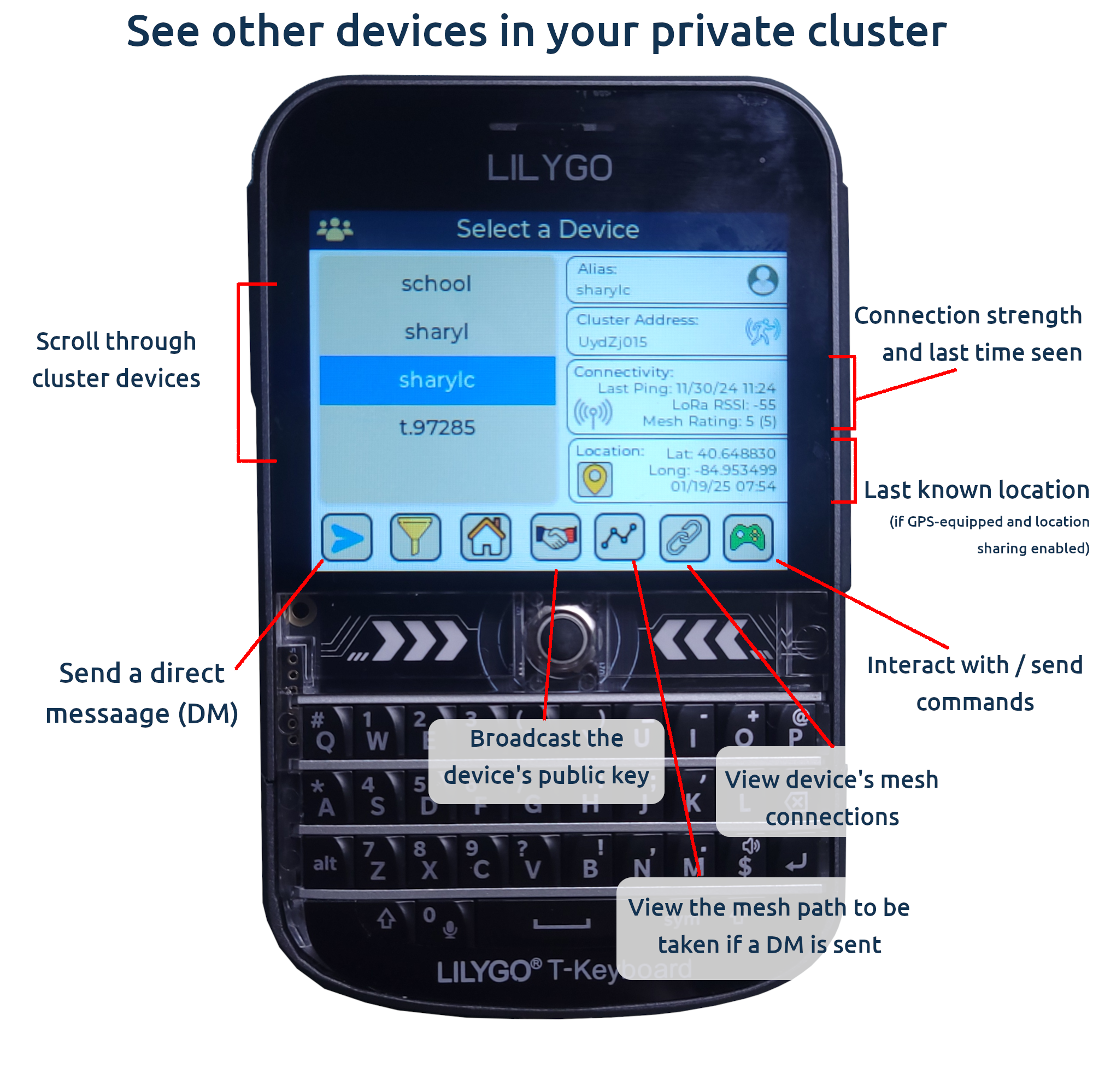Clusters and Channels
ChatterBox devices offer you two different ways of connecting with nearby (and not-so-nearby) devices. Your options, described below, are clusters and channels. Each communicator can have up to two connections in any combination, while nodes are currently limited to one connection. Using more SD cards lets you get around this limitation.
Clusters
Clusters are (by design) private, closed, and secure. There is a fixed number of devices (although read-only nodes can be added infinitely). Clusters maintain a shared and evolving state.
Messaging
Smart path planning for direct messages
Decentralized mesh cache helps deliver packets
Direct Messages & Broadcasts
Direct message delivery confirmation
Broadcast confirmation of acceptance/rebroadcast
Broadcasts can optionally be displayed on nodes
Location
Cluster-wide awareness of locations and connectivity
Location is always being securely shared/propagated through cluster-wide “pings”
View current or last-known location, speed, and heading of any device in your cluster - even those out of range
Security
New devices must be onboarded by the root device, where they are assigned a cluster address
Direct messages are asymmetrically encrypted
Broadcasts are symmetrically encrypted
All transmissions are digitally signed
Limitations
New devices must be physically close enough to the root device in order to be onboarded, since keys are never viewable and devices must have a unique address in a cluster
Max of 90 communicators and nodes
Unlimited read-only nodes
DM delivery attempts can continue for up to 24 hours
Broadcast messages can continue to propagate for up to 2 hours
Channels
Channels are open to anyone possessing the channel ID, frequency passwords, and encryption passwords. Channels can be secure, if you keep the passwords secure.
Messaging
Decentralized mesh cache helps deliver packets
All messages are broadcasts to the channel
Broadcast confirmation of acceptance/rebroadcast
Broadcasts can optionally be displayed on nodes
Broadcasting & Receiving in Channel Mode
Location
Location can optionally be sent along with any broadcast
The location marker (if sent) remains with that broadcast message as it carries forward to other devices
View current or last-known location, speed, and heading included in any broadcast
Security
Channel ID/creds can be manually entered into a communicator, or “pushed” from another communicator.
Channel info must be pushed from communicators to nodes
Broadcasts are symmetrically encrypted
All transmissions are digitally signed using channel keys
Limitations
Unlimited communicators and nodes
DM delivery attempts can continue for up to 24 hours
Broadcast messages can continue to propagate for up to 2 hours
Your cluster’s security is only as good as the weakest link in those who have/know the cluster credentials
There is no neighbors screen







